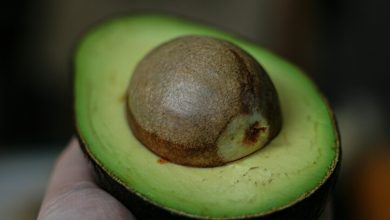These 4 ultra-processed foods can raise your diabetes risk more than others: study

The four categories of ultra-processed meals that are most likely to cause Type 2 diabetes have been found by UK researchers. These foods have long been blamed for being high in calories, sugar, fat, and salt.
According to a study published on Sunday in The Lancet Regional Health – Europe, the highest-risk UPFs include savory snacks, animal-based goods including processed meats, ready-to-eat meals, and beverages sweetened with sugar or an artificial alternative.
“This study… confirms that there are differences among the foods classified as UPF in terms of the health risks associated with them,” said University College London professor of obesity, diabetes, and endocrinology and senior author Rachel Batterham.
The UPF consumption of around 312,000 individuals from eight European nations was examined by the researchers. Almost 15,000 of the patients who were followed for an average of 11 years got Type 2 diabetes during that time.
The researchers found a 17% increase in the risk of diabetes for every 10% increase in UPFs.
By switching to unprocessed or minimally processed foods (MPFs) like eggs, milk, and fruit, or processed foods (PFs) such canned salmon, cheese, salted almonds, artisanal breads, and preserved fruits and vegetables, participants could reduce this risk.
The researchers divided UPFs into nine groups:
- biscuits, breads, and cereal for breakfast
- Spreads, sauces, and condiments
- Desserts and sweets
- savory munchies
- Plant-based substitutes
- Products derived from animals
- Ready-to-eat/warm combination dishes
- drinks sweetened with artificial sweeteners or sugar
- alcoholic beverages
- Additional UPFs

Sweetened beverages made up over 40% of the UPF consumption and 9% of the total diet of those who consumed the most UPFs, which accounted for almost a quarter of their diet.
Blood sugar levels too high have been linked to chronic inflammation, heart disease, diabetes, liver disease, and cancer. These conditions are caused by cellular damage to cells.
Conversely, the researchers of the recent study discovered that plant-based substitutes, UPF breads, biscuits, and morning cereals, desserts, and sweets were linked to a decreased prevalence of diabetes.
For instance, breads and cereals are common diet staples for many people, according to Batterham. “In terms of the dietary recommendations, I believe we should approach them differently from savory snacks or sugary drinks based on our findings.
Dietary decisions are important since obesity and Type 2 diabetes are major public health concerns in the United States.
According to Marc Gunter, an author from Imperial College London, “the results of this study add to the growing body of research that links consumption of UPF with higher risk of certain chronic diseases including obesity, cardiometabolic diseases, and some cancers.”
“Although such a study cannot determine causal relationships, it does suggest that consuming less UPF and substituting whole, unprocessed foods may lower the risk of Type 2 diabetes,” Gunter continued. It is now necessary to do additional research to comprehend processes and potential causal pathways.
The outcomes of the experiment, which the UCL team is conducting to compare MPFs and UPFs, should be released the following year.
In the meantime, processed meats and sugar-filled or artificially sweetened beverages may increase your risk of heart disease more than other UPFs, according to a recent Harvard study.
Ultra-processed bread and cold cereals were linked to a lower risk of stroke, while savory snacks, cold cereals, and yogurt/dairy-based desserts were linked to a lower risk of heart disease.




